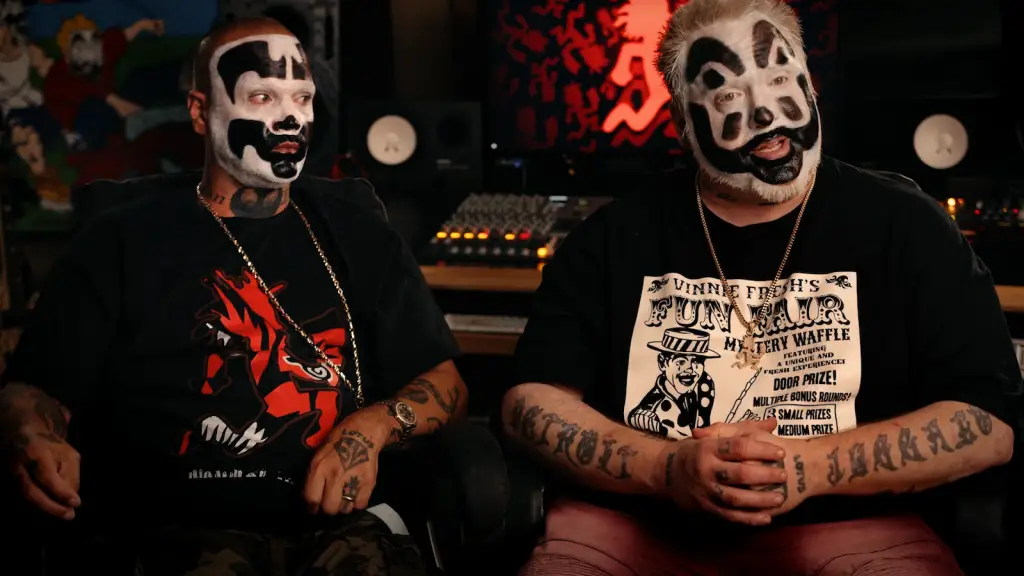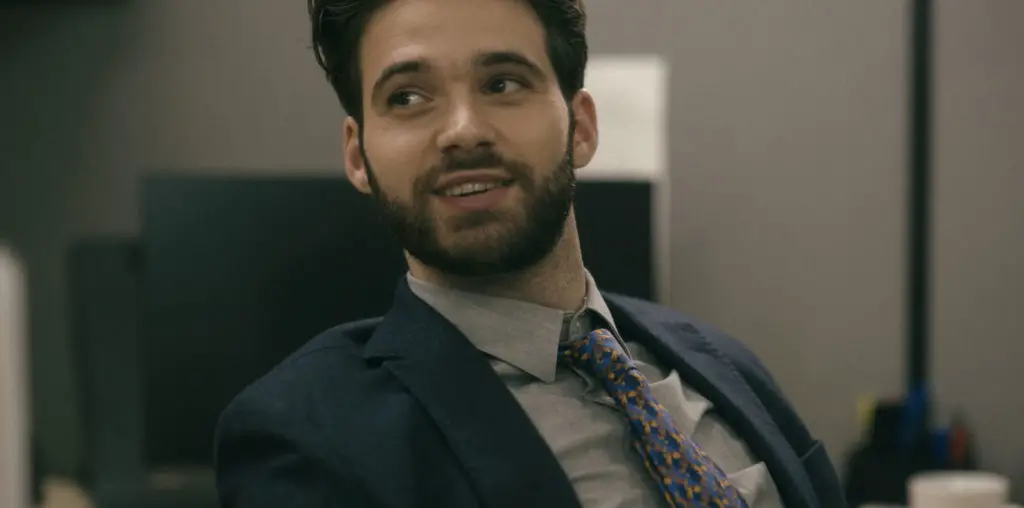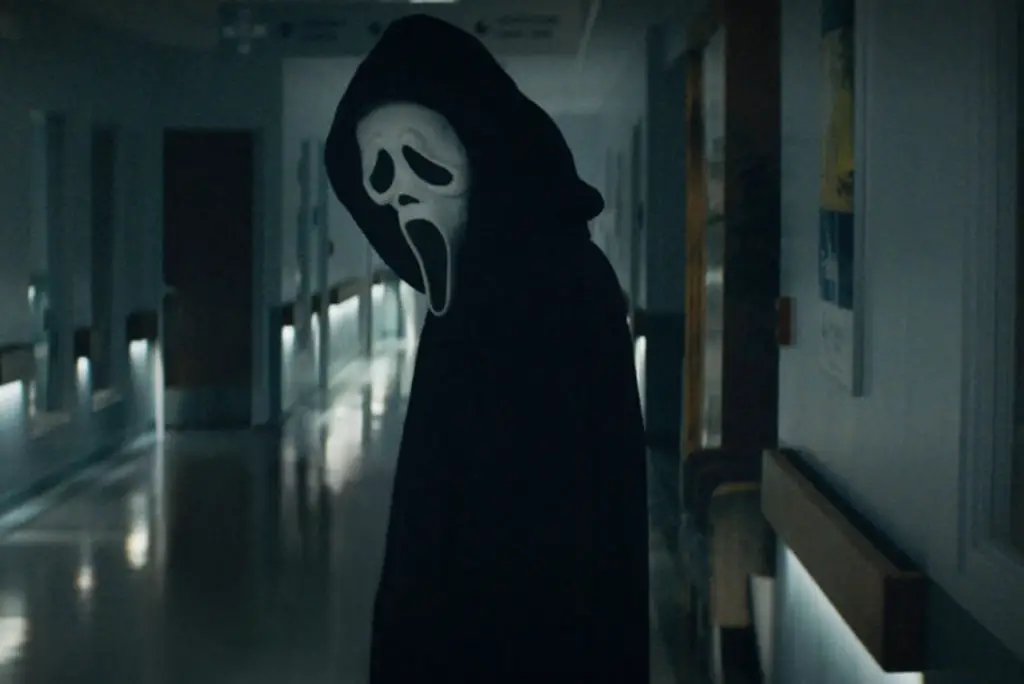
Acting in mostly independent films since the late 80s (“Longtime Companion,” “Roger Dodger”), and damn proud of it, Campbell Scott has turned to directing for the past several years, presenting audiences with films such as “Big Night” and “Final.” His latest feature, “Off the Map,” is currently traveling from festival to festival, telling the tale of a family living a simple life in the-middle-of-nowhere New Mexico, free from the government’s taxes, until a man from the IRS pays the family a little visit.
We recently caught up with Campbell at the Starz Denver International Film Festival to talk a little bit about his latest directorial effort.
Before we start talking about your movie, I wanna talk about filmmakers and critics. Movie critics wouldn’t have jobs if they didn’t review films, and filmmakers are often helped by critics who champion their movies, especially in the independent film world. So I’d like to know, do you read reviews of your movies and how do you take them when they’re both good and bad?
I like to read them in a stack, because then you get to see a real spectrum. Everybody has a different take on it. And usually it ends up being about them, whoever’s talking. You know, both the style they write in and their take on the film is gonna be somehow informed by who they are. So it’s always pretty fascinating. The critics are usually mellower at a festival becuase they’re not on a byline right away. They don’t need to get it out, they are usually supporting the festival in some way if they’re there. I think unless it’s a huge market festival, any regional festival like this, they’re either here because they live here or they like the festival.
And they’re sauced.
(Laughs) So drunk. I make little movies, you know, they need all the help that they can get.
I spoke to Richard Linklater once and he says he prefers to read the negative reviews, ’cause he feels like he’ll learn a little bit of something.
That seems like a good point. The fact is that you’re never gonna believe any of the reviews, because the movie is to you what it is to you. No one’s ever gonna sway you from what you feel about it. If you get a negative review, you’re going to justify the opposite in your brain, if you read a positive review, even if it’s something you never even thought of, which often it is, about the movie, you’re gonna justify, oh, yeah, I guess it is that great.
It’s simply about publicity, in a way, about getting it into the minds of other people. I tend to think about them more as I would a paper reader, or an audience member myself. Like, when I read reviews, I go right past the plot. I don’t want to read anything about the story, and I just get a take on whether or not I like the attitude of this guy first of all, or woman, and then to see if it has things in it that are surprising and original and then maybe I’ll go see it.
Can you tell us about “Off the Map”?
“Off The Map” is really about a young girl, played by an actress who’s never been in a feature before, Valentina de Angelis, and her and her family live out in the middle of northern New Mexico in 1974, early ’70s. And it’s about what happens to them one summer when she’s 12 and an IRS guy comes to audit them. Which is silly because they live off the map, off the grid, they’re self-sufficient-ists.
Where did the story come from?
Came from a play that I saw about 10 or 11 years ago, written by Joan Ackermann, who wrote the screenplay. I saw it in a tiny theater, ’cause a friend of mine was playing one of the leads in it, and I fell in love with the play and I’d been to New Mexico many times and I just thought – this is a movie. I don’t know why, but I just thought that. I couldn’t get it out of my brain. So 10 years later, here we are.
How did you get Joan Allen involved in the project?
We paid her an immense amount of money – $17 million. She said no like five or six times. But I couldn’t get her out of my brain, to tell you the truth. We had some wonderful actresses who were gonna do it at various times and then they couldn’t, and then I just kept going back to Joan, and literally up to a month before we’re filming, she finally said, “All right, just leave me alone. I’ll do the movie.” (Laughs)
Joan Allen, she’s naked in the movie. Is this true?
Define naked, Chris.
Without clothes…
She is, but it’s incredibly artsy. It’s so artsy that people are like, when it’s over, they’re like, what? What was that?
Is that the sell that you do for Joan Allen, say, “Joan, you’re gonna get naked, but it’s gonna be artsy?
I don’t do anything like that. Remember, I’m an actor first. I’m like, “You do whatever you wanna do. You wanna take off your clothes, fine. Whatever you want, I don’t care, I just wanna get to the end of the day without it raining.
So was that Joan Allen’s choice or…
No, it’s in the script and it’s relatively necessary, had you seen the film, you’d know why. I’m not a big one for lots of genitals flapping in the films. But it’s relatively necessary and when you see the film, you’ll understand why.
Being a director, being behind the camera, do you think you have a decided advantage having come from acting?
I don’t know if it’s an advantage. I think it helps, yeah, definitely. I think it buys you an earlier amount of trust with the actors who then think, well, he’s been here so he must know what he’s doing and then of course, they figure out I don’t know what I’m doing, but that’s not until much later. And by then, they’ve filmed and they can’t quit. It’s great.
But what I love about your career, as an actor, is you don’t take the easy choices. Not a lot of explosions in your movies. But a lot of really difficult performances.
That’s a nice way of saying I can’t get hired in Hollywood.
No, no that’s not it (LAUGH). But you look at “Roger Dodger,” and it’s amazing. I’m a movie geek if you haven’t figured that out already and a big fan of that movie and you don’t take the easy choices is what I’m saying. Do you have a process of what appeals to you? What doesn’t appeal to you, in terms of things you choose?
To answer seriously for once, it’s very personal and I make independent films and now I’m producing and directing them more. I’m making a lot with Holedigger, this company that made “Roger” and “Secret Lives and Dentists” and “Off The Map,” and we’re gonna make more. It’s a great company and it’s a result of me wanting to take more control, frankly, of my life, not just my career and that has to do with where you are and when you go away and all that s**t. So it’s personal and frankly, it’s not like getting millions of offers, man. I don’t get them. I get them on small films, but that is the world that I live in. I think it’s mostly the way I like it.
What is that process like as an actor? I mean, it’s not something where you necessarily have to audition for roles, now. People know what you’re capable of.
I still try out for the bigger films, because they don’t know me usually. But to the smaller films, no, they usually know me. I’m a New Yorker and I make films in New York, or New Mexico. Only states with “New” at the beginning. Jersey, New York, New Mexico, New North Dakota…What?
Tell me about “Roger Dodger.” There’s a great story about how you became involved in that project.
Dylan Kidd, the writer/director, approached me in a restaurant and asked me if I would read the script. That’s something I guess you’re often recommended not to do these days, ’cause you can be litigated against or something. But I can’t get jobs, so of course, I said, “Yeah, I’ll read it.” And people tend to think that’s a Cinderella story or something, but it’s not because Dylan was not a 19-year-old, you know. He’s a 35-year-old guy, made a great short, has been teaching film and was very, very smart and I was impressed with him, so suddenly were making his film and I think that was astonishing to him. But he dealt with it beautifully and made a great film.
Tell me about when you develop material for yourself to direct. What exactly are you looking for? You said “Off The Map” was a play you saw years ago. It just engaged you where you couldn’t let go of that idea? You had to see it through?
I have no criteria. All I look for is usually something different from the last thing and also something that I think I can handle, whatever that means. And something that is, in a way, mysterious to me. It has to appeal, but also be unknown. Those two put together. If it’s just one and not the other, there’s no reason to do it, because you won’t learn anything. So that’s my only criteria.
Now, can I admit something even more stupid than the fact that I haven’t seen your movie? I didn’t know that you were George C. Scott’s son.
Actually, both parents were actors. My mother was Colleen Dewhurst, who was also a wonderful actress. When you’re growing up, they’re just your parents. I didn’t want to be an actor until I was 20, so they escaped that, or thought they did. And by the time I decided to actually do it, they were both relatively kind of resigned to it (LAUGH), I think.
I just can’t imagine Patton telling you to clean up your room. You know what I mean?
I’ll leave (LAUGH) that to everyone else’s imagination (LAUGH).
So back to “Off The Map.” People actually do live like this – they don’t pay their taxes, they don’t have running water or electricity and they choose to sort of drop out of society.
Yeah. Yeah. New Mexico, I think, also Colorado, Arizona, Utah, places in the southwest area, you know, they have an effect on people. The high desert has an effect on people. 90-percent of the people who live in Taos will say, “I came here for a week to visit somebody, and I’ve been here 25 years.” Everyone says that. The place has a way of swallowing you up.
Joan Ackerman, again who wrote the play, had lived in Taos and had known families like this, like the ones portrayed in the film and that’s what started her off thinking about it and I think she was fascinated by that life.
What can the government actually do to these people?
Good question. I think people tend to live, whether they like it or not, influenced by what’s next door to them. There’s no doubt about it. If there’s nothing next door to you except bears and bees and coyotes, that’s who you might answer to first. By that, I also mean natural surroundings, seasons, et cetera. And you’ll see, when you see the film, it’s very environmental. I love films like this. You know, I as an audience member, I love them. I always mention Carol Ballard’s films, “The Black Stallion,” “Tender Mercies,” Terence Malick’s films, “Walkabout,” Nick Roeg, you know, films that have an environment as a character almost.
You’re a movie geek just like me.
Not really, no. Those are the only movies I’ve ever watched, the ones I’ve just mentioned.


